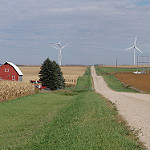
Welcome! Click on a tab below to find books, articles, and websites for use in this course.
You'll need a College of DuPage Library card in order to use most of these resources from off campus.
Questions? Feel free to contact me, stop by the Reference Desk, or contact us by email or chat Want to know more about the COD library? Check out our orientation video.
Pick a Topic
Your professor has given you some broad categories to start off your research, but you'll want to narrow these down before you get too deeply into your project. This will help you to be able to focus in on one topic that you'll be able to explore in 90 seconds. Start by looking through some of the websites below. Check out resources, research, or past projects links to get ideas of specific projects to explore.
- Google News can give you examples of current headlines on a topic.
- High Tech Harvest
- NSF-Funded Sustainable Cities Site
- Colorado Water Innovation Cluster
- Sustainable Healthy Cities Project
- ASU Global Institute of Sustainability
Once you have a topic, use special sources to get more background information on your topic:
- Gale Virtual Reference Library will provide online encyclopedia are both good sources of information and can help answer beginning questions ("What are some current sources of biofuels?"
- CQ Researcher in addition to much of the info in Gale, CQ Researcher will provide summaries of arguments being made about current topics.
Find Books
Our library catalog contains our books, our DVDs and other physical items.
Search by topic, such as "Urban Sustainability."
Once you've gotten a list of titles, click on the title and then on "Description" to get more information about it. When you've pulled up the description, you'll want to look at the Table of Contents (#2) and the Subject Headings (#3), which will allow you to see if the book is focused on your topic and help you find similar titles.
Find Articles
Next, head to a database:
Once you have a concrete question, head to a library database in order to find current articles, both popular and scholarly. The best bets for your topic are:
Academic Search Complete: ASC offers a wide variety of topics with a wide variety of types of sources (newspapers, magazines, scholarly articles.) It's a good place to look for anything with a current focus (such as Fukushima Daiichi), but be sure to know what you're looking at.
Science Direct: SD contains only scientific scholarly articles. Be sure to select "Subscribed Journals" while searching, and use Gale as necessary in order to get more information about any topics you may have questions about.
You're also welcome to explore our other science databases for more information.
Use Websites
Once you've scoped out other sources of information, take a look at websites to see if you can find more current information.
Government sites in particular can be a wonderful source of statistical data as well as a place to find directions of future research. When you search government sites, be careful to look for a site menu-- and then look for "data," "statistics," or other words that indicate something helpful. You can restrict your search to government websites only in Google by adding site:.gov to your search.
Evaluating Websites
While you're doing Google searches to either narrow your topic or in order to dig up more information on certain subject, you want to be careful to decide if the information you find is trustworthy.
When it comes to science, nearly everyone has opinions: are we getting enough Vitamin D? What will fracking do for our economy or our groundwater supply? Your job is to evaluate the information you can find through Google to find the good websites--those written by authors you can trust, with good and up-to-date information.
Authorship: Who created this website? What is their background on the topic? Are they trustworthy?
Bias: Why was the website created? What point of view does the author have? Does that limit the facts they present or how the facts are presented?
Date: How old is the information that is presented? Is it still accurate?
Questions? Check out the COD Library's guide to evaluating information.
Cite Sources
Find directions about how to cite your sources on the library citation guide.
You can also always check out the Purdue OWL website, which has MLA and APA citation guides.
Finally, you are welcome to use NoodleBib if you'd like to use a program to create and organize your citations. You must "Create a New Folder" when you use NoodleBIB for the first time. Click on "I am citing a(n):," choose the type of item you are citing, and then fill in the online form. Your bibliography will be formatted for you.
Video Help
Need to borrow a camera from the library, or want video, sound, or image editing help? Check out the library's Media Lab. The lab loans out all kinds of technology,and you'll also be able to get help using specialty software whenever the lab is open.
You'll need to reserve a workstation on the Media Lab homepage when you plan to drop in.